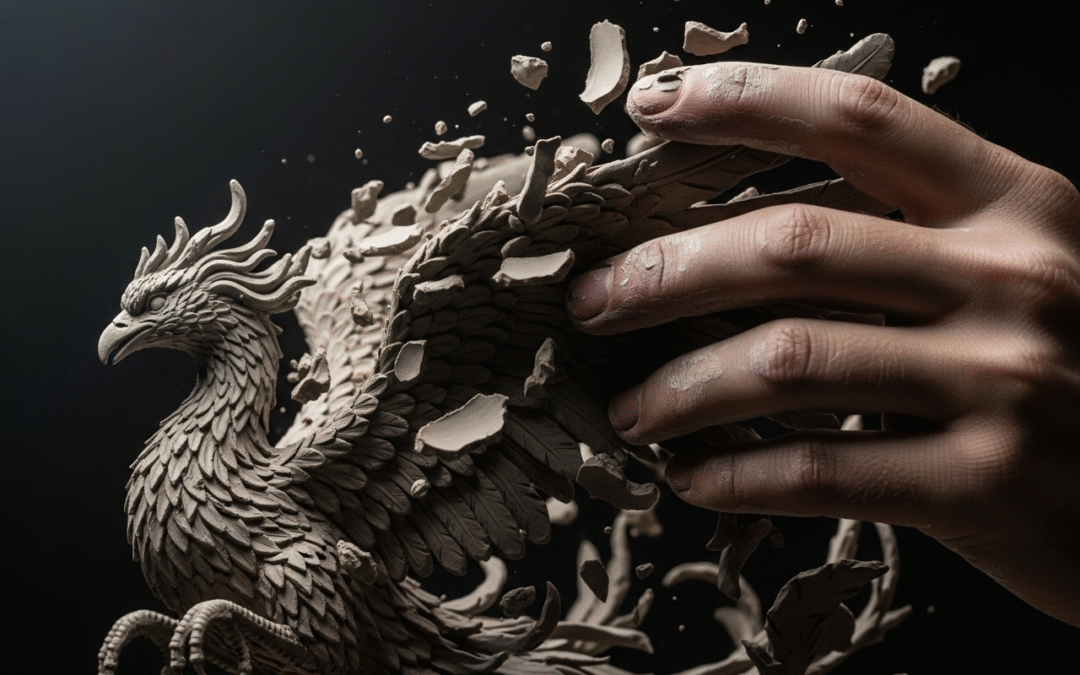Creation is generally considered to be one of the greatest powers of mankind. We construct art, technology, music, relationships, and entire civilizations. To create is to construct something that did not exist before, to leave some trace that did not exist before. But under this inoffensive inquiry is a more rancorous one: does every act of creation always involve some destruction as well? Is constructing always destroying?
Think of something as harmless as a spot on a virgin page. The moment ink is applied to paper, all that before existed innocent emptiness no longer exists. The canvas must be filled by the painting. The rock must be incised by the sculpture. Even in art, one must advance on the destruction of another, the previous state razed to create space for the next. Cities grow through clearance, new growth renders earlier ones obsolete, and construction for tomorrow typically involves demolishing some aspect of yesterday. It is something that doesn’t relate solely to art or culture, it’s the way things go.
For a forest to grow, there must be older trees that pass away to accommodate the new to grow. For life to exist, something else has to perish to support it. To make new generations of human beings born, old ones have to concede at some juncture. Creation and destruction are not opposites but co-partners in a constant dance. Destruction in nature is never meaningless; it is transformation. Does that eternally morally taint creation at every instance?
If to make is to destroy, then are we responsible morally for what our making ravages? Take technology. Each new thing—automobiles, telephones, the internet—opens doors but levels something in its path: jobs, traditions, ways of life, sometimes whole environments. Ethics of making can’t turn a blind eye to its shadow. To build is to behold what is being destroyed and to wonder if the trade is an even one. Thinkers and creatives have welcomed this tension long ago. Nietzsche spoke of the need for “creative destruction”, the need that prior structures have to fall apart and be burned away in order to make room for new possibility and values. Destruction is needed lest life becomes stagnant, and creation is needed lest it is empty. Similarly, modern minds like Joseph Schumpeter applied the concept to describe economics, labeling capitalism as an innovating process that continuously creates old orders to be destroyed. And like the process continues, it takes its victims, too, displaced workers, cultures changed, deracinated lives. Creation, in either of these contexts, is never tidy. There is the other side of the coin, however. Destruction is not destruction, maybe, it’s metamorphosis. The blank page is not destroyed when it is filled in; it is merely recreated. The trees cut to put a town together give up one life but discover another. The past is not destroyed when the future is created, it is the ground upon which the new is seeded. It does not make it lossless, but places it into a cycle, as opposed to theft.
Morally, the problem is one of proportion. Not all creation is equal. To destroy a house in order to construct another is one thing; to destroy an ecosystem or a culture for convenience is another. Not all creation is ethical if its price is not being paid. To be ethical in creating is to be willing to look straight at what is being destroyed and to consider whether the new is worth destroying.
Perhaps this is the human paradox.
We cannot create without changing the world around us, without destroying something, displacing something, or halting something. But we cannot not create. It is what we do, to build, to dream, to remake. The moral demand, therefore, is not to divide creation and destruction but to ensure that what we tear down in the process of making is respected, valued, and, where it is feasible, substituted with something of value, not removed. So does making necessarily entail the destruction of something else? Yes, in a way. But not absolutely, only as a step on the road to making. It’s not the question of whether making entails destroying, but whether we make in ways that respect what’s already been made and care for what’s made next.
